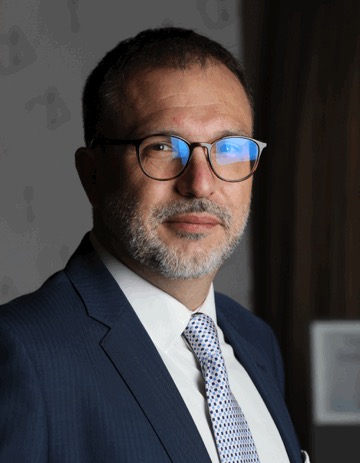Studying at the University of Verona
Here you can find information on the organisational aspects of the Programme, lecture timetables, learning activities and useful contact details for your time at the University, from enrolment to graduation.
Academic calendar
The academic calendar shows the deadlines and scheduled events that are relevant to students, teaching and technical-administrative staff of the University. Public holidays and University closures are also indicated. The academic year normally begins on 1 October each year and ends on 30 September of the following year.
Course calendar
The Academic Calendar sets out the degree programme lecture and exam timetables, as well as the relevant university closure dates..
| Period | From | To |
|---|---|---|
| 1° periodo di lezioni - 2° anno (1A) | Sep 29, 2017 | Nov 9, 2017 |
| 1° periodo di lezioni - 1° anno (1B) | Nov 10, 2017 | Dec 23, 2017 |
| 2° periodo di lezioni - 2° anno (2A) | Feb 8, 2018 | Mar 24, 2018 |
| 2° periodo di lezioni - 1° anno (2B) | Apr 5, 2018 | May 19, 2018 |
| Session | From | To |
|---|---|---|
| Sessione invernale – 2 appelli | Jan 9, 2018 | Feb 7, 2018 |
| Sessione estiva – 2 appelli | May 22, 2018 | Jul 14, 2018 |
| Sessione autunnale – 2 appelli | Aug 28, 2018 | Sep 26, 2018 |
| Session | From | To |
|---|---|---|
| Sessione autunnale – ottobre 2017 | Oct 16, 2017 | Oct 16, 2017 |
| Sessione straordinaria – marzo 2018 | Mar 29, 2018 | Mar 29, 2018 |
| Sessione estiva – luglio 2018 | Jul 5, 2018 | Jul 5, 2018 |
| Period | From | To |
|---|---|---|
| All Saints Day | Nov 1, 2017 | Nov 1, 2017 |
| Immaculate Conception | Dec 8, 2017 | Dec 8, 2017 |
| Vacanze di Natale | Dec 24, 2017 | Jan 6, 2018 |
| Easter break | Mar 30, 2018 | Apr 3, 2018 |
| Liberation Day | Apr 25, 2018 | Apr 25, 2018 |
| Festa dei lavoratori | May 1, 2018 | May 1, 2018 |
| Patron Saint Day | May 21, 2018 | May 21, 2018 |
| Republic Day | Jun 2, 2018 | Jun 2, 2018 |
Exam calendar
Exam dates and rounds are managed by the relevant Law Teaching and Student Services Unit.
To view all the exam sessions available, please use the Exam dashboard on ESSE3.
If you forgot your login details or have problems logging in, please contact the relevant IT HelpDesk, or check the login details recovery web page.
Should you have any doubts or questions, please check the Enrollment FAQs
Academic staff
 roberto.flor@univr.it
roberto.flor@univr.it
 gianluigi.lucietto@univr.it
gianluigi.lucietto@univr.it

Migliorati Lorenzo
 lorenzo.migliorati@univr.it
lorenzo.migliorati@univr.it
 045802 8135
045802 8135
Study Plan
The Study Plan includes all modules, teaching and learning activities that each student will need to undertake during their time at the University.
Please select your Study Plan based on your enrollment year.
1° Year
| Modules | Credits | TAF | SSD |
|---|
2° Year activated in the A.Y. 2018/2019
| Modules | Credits | TAF | SSD |
|---|
| Modules | Credits | TAF | SSD |
|---|
| Modules | Credits | TAF | SSD |
|---|
| Modules | Credits | TAF | SSD |
|---|
Legend | Type of training activity (TTA)
TAF (Type of Educational Activity) All courses and activities are classified into different types of educational activities, indicated by a letter.
Constitutional law and Fundamental Rights (2017/2018)
Teaching code
4S003635
Teacher
Coordinator
Credits
6
Language
Italian
Scientific Disciplinary Sector (SSD)
IUS/08 - CONSTITUTIONAL LAW
Period
2° periodo di lezioni - 1° anno (2B) dal Apr 5, 2018 al May 19, 2018.
Learning outcomes
The course proposes a critical survey of the emergency constitutional Law and focuses on the constitutional systems of emergency.
The course provides to analyze the instruments for an understanding of relationship between constitutional law and legal definition of emergency, examining how the emergencies influence the fundamental rights guaranteed by the Constitution and how the priority of constitutionalism is balance freedom and security. The area of emergencies will be developed on many areas involving the sources of law, the constitutional law of war. The course analyzes the rights and the changes of system of government during the time of emergencies.
The course provides to analyze how a government or division of government (i.e. on a municipal, provincial/state level) may declare that their area is in a state of emergency. This means that the government can suspend and/or change some functions of the executive, the legislative and/or the judiciary during this period of time. A government can declare a state of emergency during a time of natural or human-made disaster. The course provides an introduction to the basic constitutional principles of emergency during a period of natural or human made disaster.
Program
The legal definition of emergency. The classical doctrines of emergency. The legal forms of emergency: the emergency law, the constitutional crisis, the illegal revision, the absolute emergency. The state of exception. Emergencies and technical limitations of fundamental rights. War and constitution. Law of war. The necessary powers. The minimal constitutional imperative. The constitutional relationship between war and system of government.
| Author | Title | Publishing house | Year | ISBN | Notes |
|---|---|---|---|---|---|
| Giovanna De Minico | Costituzione. Emergenza e terrorismo. | Jovene editore | 2016 |
Examination Methods
Students that will attend the lectures must study:
1) lecture notes.
Students that will not attend the lectures must study
1) The students that will not attend the lectures are invited to contact Daniele Butturini (daniele.butturini@univr.it) at the beginning of the course in order to set teaching methods and assessment tests.
For students not attending the course, there will be an oral examination; for students attending the course, there will be an oral examination.
ERASMUS students are invited to contact Daniele Butturini (daniele.butturini@univr.it) at the beginning of the course in order to set teaching methods and assessment tests.
Teaching materials e documents
-
 programma e testi consigliati (ita)
(msword, it, 28 KB, 08/08/17)
programma e testi consigliati (ita)
(msword, it, 28 KB, 08/08/17)
Type D and Type F activities
Le attività che consentono l’acquisizione dei crediti riservati alle attività formative a libera scelta dello studente (TAF D) sono le seguenti:
• Un insegnamento attivato nei Corsi di studi afferenti al Dipartimento di Scienze Giuridiche;
• Un laboratorio didattico attivato nei Corsi di studi afferenti al Dipartimento di Scienze Giuridiche;
• Un insegnamento previsto dall’Offerta Formativa di Ateneo, non impartito nell’ambito dei corsi di studi afferenti al Dipartimento di Scienze Giuridiche: il riconoscimento dei crediti acquisiti sarà subordinato alla preventiva presentazione di coerenti programmi formativi valutati e approvati dal Collegio didattico.
• Attività formative organizzate dai singoli docenti del Collegio didattico o del Dipartimento di Scienze Giuridiche: previa approvazione del Collegio;
• Attività formative che implicano la partecipazione a convegni o seminari organizzati sotto il “logo” del Dipartimento di Scienze Giuridiche o dell’Ateneo: devono essere preventivamente approvate dal Collegio didattico indicando un docente di riferimento del Collegio didattico ovvero del Dipartimento di Scienze Giuridiche.
• Attività formative che implicano la partecipazione a convegni o seminari organizzati prive del “logo” del Dipartimento di Scienze Giuridiche o dell’Ateneo: devono essere approvate dal Collegio didattico indicando un docente di riferimento del Collegio didattico ovvero del Dipartimento di Scienze Giuridiche.
Le attività che consentono l’acquisizione dei crediti riservati alle ulteriori attività formative (TAF F) sono le seguenti:
• Ulteriori competenze linguistiche (6 cfu)
• Stage o Project Work (6 cfu)
Al link https://www.univr.it/it/i-nostri-servizi/segreterie-studenti/giurisprudenza#categdoc_7103 la modulistica per l'inserimento di attività non selezionabili in autonomia dallo studente in sede di compilazione del piano degli studi
Modules not yet included
Career prospects
Module/Programme news
News for students
There you will find information, resources and services useful during your time at the University (Student’s exam record, your study plan on ESSE3, Distance Learning courses, university email account, office forms, administrative procedures, etc.). You can log into MyUnivr with your GIA login details: only in this way will you be able to receive notification of all the notices from your teachers and your secretariat via email and soon also via the Univr app.
Student mentoring
Internships
Internships are aimed at enabling students to gain direct knowledge of the world of work and to acquire specific professional skills.
Internships are carried out under the responsibility of an individual lecturer, and can be carried out in professional firms, public administration bodies and companies recognised by the University of Verona.
Any CFU credits gained by doing internships will be recognised and recorded by the University in accordance with the relevant University regulations in force (Regolamento d’Ateneo per il riconoscimento dei crediti maturati negli stage universitari).
For further information on internships, please go to: https://www.univr.it/it/i-nostri-servizi/stage-e-tirocini.
Language skills
Graduation
List of theses and work experience proposals
| theses proposals | Research area |
|---|---|
| Analisi e riorganizzazione delle strutture comunitarie | Various topics |
| La social network analysis applicata allo studio dei contesti colpiti da eventi catastrofici | Various topics |
| L'intervento sociale in situazioni d'emergenza | Various topics |
| Politiche d'intervento in condizioni d'emergenza | Various topics |
| Terzo settore e gestione delle situazioni d'emergenza | Various topics |














